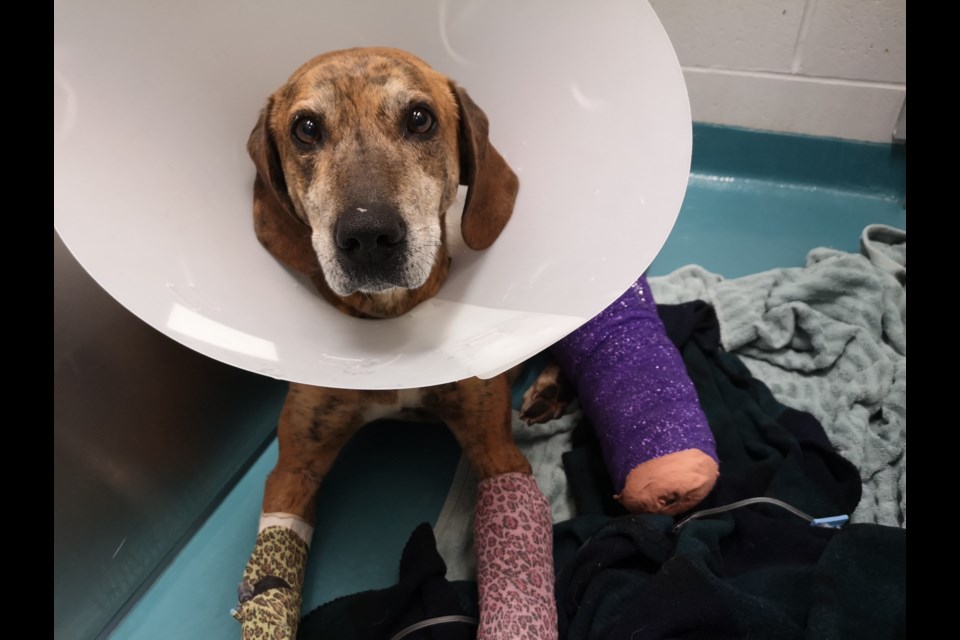With a little help from social media and a lot of love from the community, a dog that was hit by a car near Stratford and suffered painful injuries is on the mend and living in a foster home.
Jayce suffered a fractured back leg, fractured toes and other traumatic injuries.
After emergency surgery, The Humane Society of Kitchener Waterloo & Stratford Perth put out an urgent appeal on social media. In short order more than $7,000 was raised.
Just one example of how the humane society cares for animals and engages with community.
Jayce was rushed to emergency surgery in Cambridge. Due to the severity of his injuries, he had a leg amputated. The outcome could have been worse, had a community member not called it in.
“We are not just an adoption facility, we are here to support pets,” said Calla James, director, community engagement and outreach.
The 8,000 square foot Stratford facility on Griffith Road is part of the broader Kitchener and Waterloo organization, and relies on private donations. The only government funding is fee-for-service for animal control contracts and bylaw enforcement.
The Stratford location includes cat communal rooms, ‘condos’ and ‘dog runs’. The kennels are single and double-sided for dogs - puppies sometimes need to stay together.
All of the beds were replaced this year after an $8,000 fundraiser.
Staff are busier than ever, James said. If there is an empty condo or kennel, the animals are more than likely out at a foster home.
“We want them to be as comfortable as possible. While that is possible here, it is just not the same as the couch (at the foster home).”
The facility offers some traditional services - an in-house clinic with professional staff (spay/neuter by appointment) and some newer initiatives, such as a dog wash station and pet food bank. The ‘pet pantry’ has grown and the humane society has partnered with Stratford House of Blessing, It Takes a Village in Listowel and the Salvation Army in St. Marys to ensure pet owners are getting food for their animals, regardless of their owner’s life circumstances.
The pandemic required the organization to change some things around. Though they prepared for it, people did not surrender their animals in droves, as some had predicted.
James said they re-opened to the public in early April. Appointments have replaced drop-ins for adoption meet-and-greets.
“It is better for the stress level of the animals,” she said.
Stray intake was lower during COVID and has been lower overall since leaning on social media for community help - spreading the word when an animal goes missing or is found.
“Social media plays a big part in getting lost pets home quickly.”
The Stratford location runs its own Facebook account and posts up to four times per day to spread news about foster or adoption opportunities or fundraising events.
The facility includes a community education room, where kids can learn about becoming a veterinarian.
James said staff and volunteers listen to the community to stay ahead of needs. They now offers rabies shots once per month, instead of once per year, for example.
“The goal over the next three years is to find gaps in the community and see how the humane society can help. Or if there is someone we can collaborate with in our community to provide supports.”



